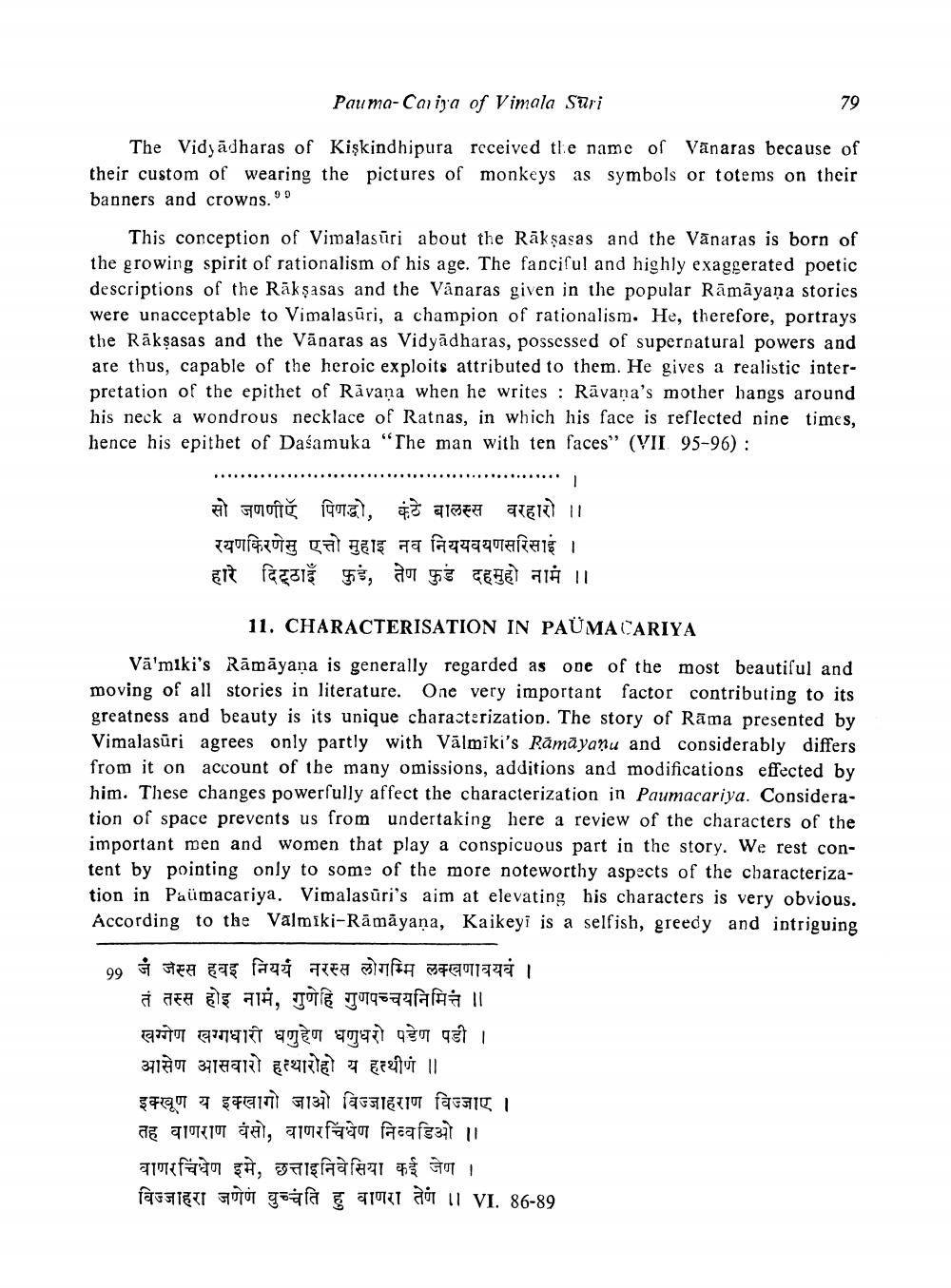________________
Pauma-Cariya of Vimala Suri
The Vidyadharas of Kişkindhipura received the name of Vanaras because of their custom of wearing the pictures of monkeys as symbols or totems on their banners and crowns." 99
This conception of Vimalasuri about the Raksasas and the Vanaras is born of the growing spirit of rationalism of his age. The fanciful and highly exaggerated poetic descriptions of the Rākṣasas and the Vanaras given in the popular Rāmāyaṇa stories were unacceptable to Vimalasûri, a champion of rationalism. He, therefore, portrays the Rākṣasas and the Vänaras as Vidyadharas, possessed of supernatural powers and are thus, capable of the heroic exploits attributed to them. He gives a realistic interpretation of the epithet of Ravaṇa when he writes: Ravana's mother hangs around his neck a wondrous necklace of Ratnas, in which his face is reflected nine times, hence his epithet of Daamuka "The man with ten faces" (VII 95-96) :
1
सो जणणीऍ पिगद्धो, कंठे बालस्स वरहारी || रयणकिरणेसु एतो महाइ नव निययवयणसरिसाई । हारे दिट्ठाई फु, तेण फुढं दहमुहो नामं ॥
11. CHARACTERISATION IN PAUMACARIYA
Vä'mlki's Rāmāyaṇa is generally regarded as one of the most beautiful and moving of all stories in literature. One very important factor contributing to its greatness and beauty is its unique characterization. The story of Rama presented by Vimalasuri agrees only partly with Valmiki's Ramayanu and considerably differs from it on account of the many omissions, additions and modifications effected by him. These changes powerfully affect the characterization in Paumacariya. Consideration of space prevents us from undertaking here a review of the characters of the important men and women that play a conspicuous part in the story. We rest content by pointing only to some of the more noteworthy aspects of the characterization in Paumacariya. Vimalasûri's aim at elevating his characters is very obvious. According to the Valmiki-Rāmāyaṇa, Kaikey! is a selfish, greedy and intriguing
99 जं जेस्स हवइ निययं नरस्त लोगम्मि लक्खणावयवं । तं तस्स होइ नामं, गुणेहि गुणपच्चयनिमितं ॥
79
खग्गेण खग्गधारी धणुहेण धणुधरो पडेण पडी । आसे आसवारो हत्थारोहो य हत्थीणं ॥ इक्खूण य इक्खागो जाओ विज्जाहराण विज्जाए । तह वाणराण पैसो वाणरचिपेण निव्वडिओ ||
,
वाणरचिचेण इमे छत्ताइनिवेसिया कई जेण । विज्जाहरा जणेण युवतिहु वाणरा तेणं ॥ VI. 86-89




